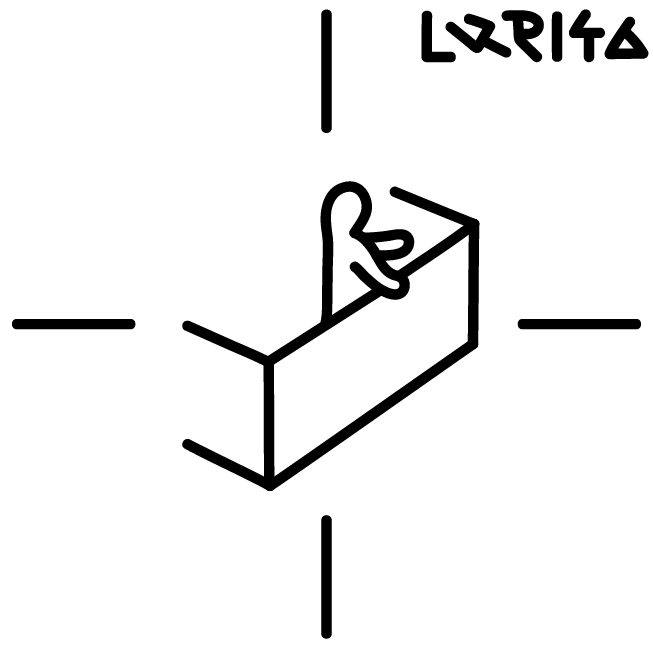A story about destruction
A horizon bustles with buildings, stacked up, side by side, in front of each other. The lines of their walls, balconies and roofs merge, and at first impression they compose what can be seen as a messy cramped display of walls, no matter how city planners tried otherwise. Though, on a closer careful look, one soon identifies labyrinths of scribbled words that may act as talismans in need of reading, and their spell is to be neutralised.

Before this crammed display lacking in colour, stretched across the radar’s screen, the engineer sits attentively, trying to decode whatever words posing a threat he might detect hidden in these buildings. Sometimes the display registers movements initiated by humans, the distance turning them into sombre shadows of restless commas attempting to impose some tone, but they fail. Instead, the stubborn sounds of the rustle of the engineer’s clothes, fresh from the washing, whenever he moves, or of the weight of his fingers on the keyboard, accompany these commas.
One sombre shadow of a human, still camouflaging into a comma, appears on a balcony of an apartment building. A louder sound erupts from the engineer’s chair, scratching the floor, followed by the click of fingers pressing the keyboard to enlarge the image. The comma leans for a few seconds, looking into something on the balcony’s western side, before disappearing again into the apartment. That’s when suddenly, the lines appear uninterrupted. Drawn from the end of that balcony, across another balcony, long and narrow without a frame, linked to a stairway, followed by a similar balcony and a second stairway of the building, the engineer unmistakably identifies it. Written by snaking staircases, separated by straightening up balconies opening to nothing, then downwards before stretching straight once more is the word: « sSEsamE ».
This article is behind the paywall. Want to keep reading this article?
Subscribe to the European Review of Books, from as low as €4,16 per month.
Already a subscriber? Sign in